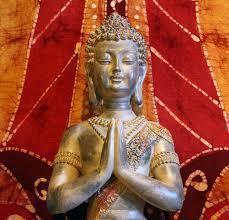Exploration in to Action Research Review of Cultural Clash supported by Buddhist Methodology
Blog by Marcus Seels
I found Shen’s (2015), Action Research in a Problem Avoiding Culture using a Buddhist Systems Methodology to be an interesting article. It’s an investigation into integration in real world situations. Buddhist teachings are an established habit and there is a need for understanding of culture.The article under review looked into a cultural investigation of avoiding problems under the scope of indigenous review. The nature of the study was to approach the issue of avoiding problems within the community of participants who followed a variation of Buddhism. The challenge of the study was to ask if the ways of investigating promoting the end goal of a harmonious lifestyle or does cultural traditions continue to wedge communities into sub sections.
The personal resignation she describes that I found so interesting is the about advancement of cultural development in modern era. It creates confusion in today’s cross functional culture. Graduate students would find this AR useful in developing insights into their own epistemology. As far as a social science exploring diversity within cultures additionally I found it interesting because it’s an international study. By being immersed in the culture and environment the feel for an experience is trumped by the notion that research practice is work. I would be more in tuned with the purpose if I didn’t go home at the end of the day but rather be in the field living the study compared to studying it within a 40 hour workweek.
The comparison of this article is between plurality of system ideas and Humanistic Buddhism. The issue of avoid problems is a determent to a culture and society because this effects people as functioning in the community; to “shut down” as s person is not contributing to their given community. The article explains this in two ways as one person being burned out at work and complicates leaving their job and as a person in a family who has a issue with something and they are not at liberty to address due to the hierarchy and norms leaving the person to express symptoms of withdraw. The world issue here is the loss of drive and lack of motivation; collectively this addresses a type of statistic related to unemployment, high turnover, increase in health care, and mental illness. This study’s context of Buddhist methodology is to find a harmonious outcome to promote a culture build on a collective confidence; the intervention applied a type of interrogation practice of Soft System Methodology.
The end result was to adopt a sub section’s approach to the problem avoiding issue is to recognize the value of practicing harmonious living. By doing so the concept is packaged in a way that is similar enough to be valuable to the community but different enough to make significant change over time. The transferable principle is finding a way of thinking that is culturally familiar to the participants and strongly valued by them; once achieved that will foster a better understanding of how to address symptoms and treat the root causes of problem avoidance.
Reflecting back towards the author who lived this experience of the AR I would be curious to know how would does this experience build a foundation of individualism to each AR as a unique experience as well as wondering how did it feel to return from the experience as in if that has changed her as a person or was it just work. One thing I would recommend to add it an addition of photographs or some kind of documented relics to commemorate the experience or some form of tangible art.
Questions to the author:
1. How did you grow as a person from this experience?
2. How did the experience work between the relationship of the participants as individual and as a group?
Bio: Marcus Seels
I am a graduate student in the Education Department for a private university. As a first year first semester student I am currently getting antiquated with the program by investigating interests in developing cultural value in the matters of community and using the scope of integration as provided by the professors whose classes I attend. My goal is to have a more clear understanding of how to proceed further in the program and to discover approaches to real situations and apply an academic approach to each one.
Reference:
Action Research Article: Shen, Chao-Ying, Action Research in a Problem Avoiding Culture using a Buddhist Systems Methodology, (2015) SAGE DOIL 10.1177’76750314558428
Key words:
Learning Education
Action Research
Methodology
Higher Education
Student
